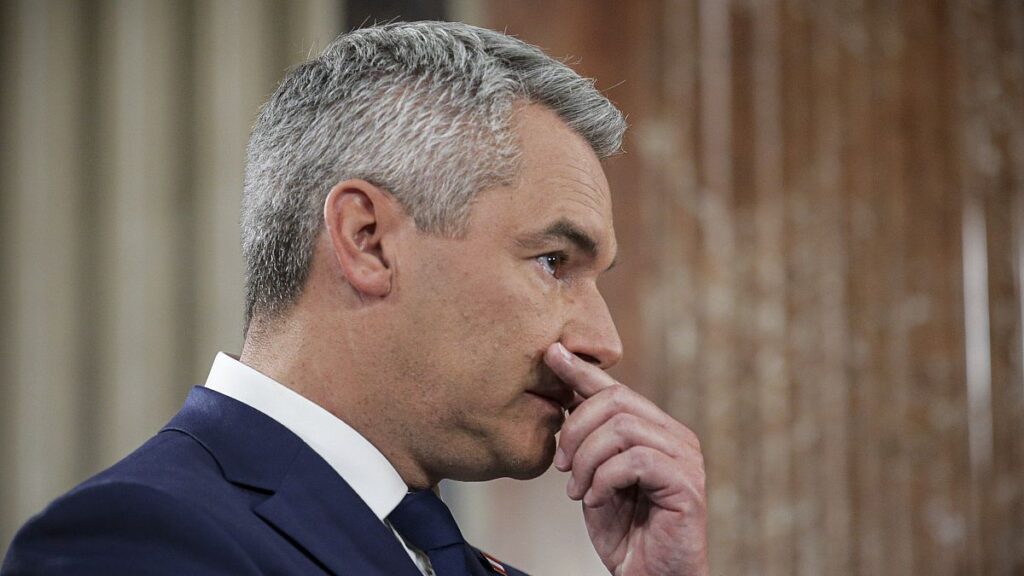Coalition talks have dragged on because Austria’s main political parties have refused to cooperate with Herbert Kickle, leader of the right-wing Freedom Party (FPÖ), which came in first place in September’s general election with 28.8% of the vote.
Austrian Chancellor Karl Nehammer has announced that he will resign in the coming days after negotiations to form a new government failed for the second time.
The announcement came a day after the liberal Neos party abruptly withdrew from talks, and after the People’s Party (ÖVP) and Social Democratic Party (SPÖ) continued coalition talks.
Following the victory of the right-wing Freedom Party in September’s national elections, Neos is seeking to form a three-party ruling coalition with Chancellor Karl Nehammer’s conservative Austrian People’s Party and the centre-left Social Democratic Party.
“Unfortunately, I have to say today that negotiations have ended and the People’s Party will not continue,” Nehammer said in a post on X.
“We have tried everything so far. An agreement on important points is impossible and does not make sense for a positive future for Austria.”
Nehammer said the “destructive forces” within the Social Democratic Party “have the upper hand” and that the People’s Party will not sign up to plans that go against economic competitiveness and the introduction of new taxes.
Social Democratic Party leader Andreas Babler said he regretted the People’s Party’s decision to terminate negotiations.
“This is not a good decision for our country,” he said.
Mr Babler said one of the main hurdles had to do with how to repair the “record deficit” left by the previous government.
“I proposed to Karl Nehammer and the People’s Party to continue negotiations and called on them not to give up,” he told reporters.
Neos leader Beate Meinrreisinger said progress was impossible and no “fundamental reforms” had been agreed. She informed the opposing party’s leaders that NEOS members “will not continue” negotiations.
Negotiations dragged on because all other parties refused to cooperate with Freedom Party (FPÖ) leader Herbert Kickle. He came first in the September elections with 28.8% of the vote, forcing the ÖVP and SPÖ to try to field talent. Establish small political parties to support the majority party.
In a statement, Mr Kickle complained that the three main party leaders had wasted months on an “anti-Kickle strategy”.
“Instead of speed in forming a government, three months have been lost. Instead of stability, there is chaos,” he said.
Future challenges
The next step is likely to be new elections, which the right-wing FPÖ immediately welcomed, as opinion polls show support has increased since the elections.
According to a survey commissioned by Der Standard newspaper, the FPÖ increased its support to 35% of the vote among likely voters in December.
But whoever heads Austria’s next government will face the challenge of saving between 18 billion and 24 billion euros, according to the European Commission.
Moreover, Austria has been in recession for the past two years, unemployment is rising and the budget deficit is currently 3.7% of GDP, above the EU limit of 3%.



